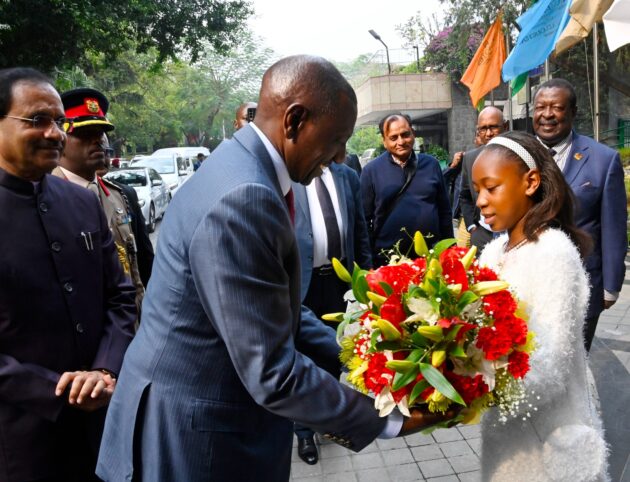President William Ruto has arrived in India, where he is expected to conduct a two-day state visit.
During the visit, he will engage in bilateral talks forging healthcare partnerships, particularly in pharmaceuticals production and capacity building, and collaboration in education.
State House Spokesperson Hussein Mohamed said President Ruto will meet with India’s Prime Minister Narendra Modi where the talks will lead to the signing of several memoranda of understanding that will strengthen ties between the two countries.
He said President Ruto will also meet with President Droupadi Murmu to address trade and investment forum highlighting the immense potential for economic cooperation between Kenya and India.
Ruto will also meet with President Droupadi Murmu to address trade and investment forum highlighting the immense potential for economic cooperation between Kenya and India. By Sharon Resian, Capital News






